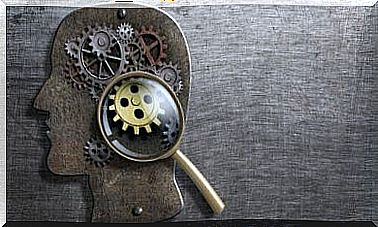Use The Pareto Principle To Be More Productive

A famous US military veteran and politician once said, “There are no secrets to success. It is the result of preparation, hard work and learning from your mistakes.” When you think of this quote, the Pareto principle may lose its meaning. Pareto seems to argue that you can achieve goals with minimal effort.
While Vilfredo Federico Pareto, born in Paris to Italian parents, postulated his famous principle over 100 years ago, and there are those who continue to believe in it as if it were written in law. Let’s see exactly what it means.
The Pareto principle
The Pareto principle is also known as the 80/20 rule. This is because the Italian philosopher and sociologist claimed that 80% of the benefits you receive come from 20% of the effort you put into it. This can be applied to various areas of life, including personal, professional and social successes.
Pareto, who was also known as a famous economist in his day, really put all his money on productivity. He did not believe in making an effort all the time (continuous), but in efforts that produced really good results (selective).
While it is an oversimplification to say that the Pareto principle is a way to achieve success without effort, it means that you are really productive and focus directly on relevant tasks at every level.
Pareto advocated reducing efforts in many areas of life. He believed that we simply need to amplify the things that will really result in a great benefit. Despite the 80/20 simplification, his experiments led him to conclude that with 15-25% of your work you can achieve 75-85% of your success.
How to view the Pareto principle
The Pareto principle has clear applications for reality. It simply states that 80% of the effects of the things that happen to us come from 20% of the causes. The sociologist discovered some unique situations, such as 20% of a country’s population owns about 80% of its total assets. This, along with other discoveries, led him to state the following:
- 20% of customers often generate 80% of a company’s revenue
- 80% of your personal satisfaction comes from 20% of the people in your immediate environment. They are the ones who give you love, friendship, understanding, etc.
- When you exercise only 20% of the activity gives you 80% of the benefits you receive
So now it makes sense that Pareto believed that 20% of your efforts, if properly focused, can be 80% of your success. But if the effort is not properly distributed, the success level will be many times lower, even if you put in the same effort.
How to apply the Pareto principle
As a sociologist and economist, Vilfredo Pareto naturally based his research on real examples. He also wrote how you can take advantage of the principle, since we all do this unconsciously already.

We are not all aware that we work through the Pareto principle, but there are a number of ways to find out. You may already be following this principle if:
- You delegate tasks that you know are not important
- You do what you like, but don’t spend your whole day on this
- You do what other people want you to do, but spend more time fulfilling your own desires
- You work or live the way you really want and with the people you really want to be with
- You do activities that require a lot of effort, but don’t take up much of your day, just the necessary amount
As you can see , the Pareto Principle can have some interesting practical applications. While it naturally requires effort and tenacity, it also indirectly implies the need to use your time effectively. It is certainly a great law that you can apply in your daily life. It’s simple, it reinforces what you’re really good at and if you’re able to optimize that 20% of effort, you’ll see immediate results.









